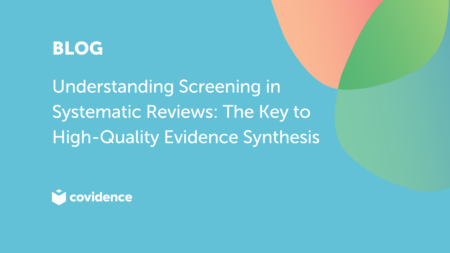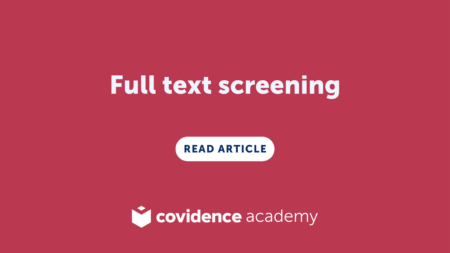Title and abstract screening is the first crucial step to identify potentially relevant studies retrieved from databases or other sources based on the eligibility (inclusion and exclusion) criteria.
So why is title and abstract screening important?
Efficiency for study selection: Systematic reviews often identify many potentially relevant studies. Title and abstract screening allows the research team to quickly exclude irrelevant studies based on predefined eligibility criteria so that attention can be focused on more relevant studies.
- Resource savings: It could be very expensive and time consuming if you had to retrieve the full text for every potential study. Title and abstract screening prioritises the studies for full-text review.
- Quality Control: This first step helps the research team to identify and deal with discrepancies or uncertainties with the eligibility criteria. There might be a need for more training for the team.
This key first step in the review process ensures that only studies meeting the predefined criteria are screened in full-text review.
Title and abstract screening in a systematic review should ideally be undertaken by two independent reviewers. Where there are conflicts (disagreements) in voting selection the options include a resolution between reviewers or the use of a third independent adjudicator where conflicts cannot be resolved.
Summary
This first stage streamlines the systematic review process by quickly narrowing down studies to those most relevant. This step reduces the time and cost associated with retrieving full texts and helps maintain focus on high-quality research. Covidence users save an average of 72 hours during their reviews thanks to our innovative screening process, significantly boosting efficiency.
Click here to go back to Covidence Academy.
Already have an account? Sign in and start screening!
Explore more resources.


